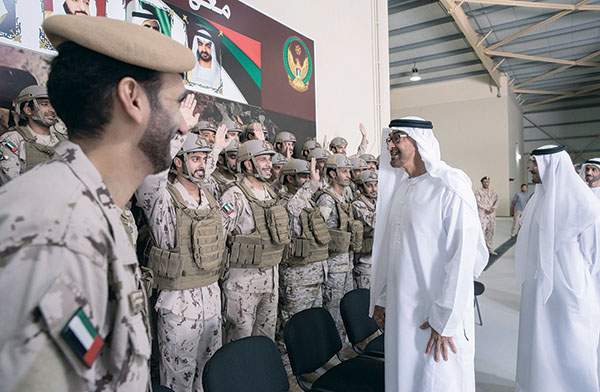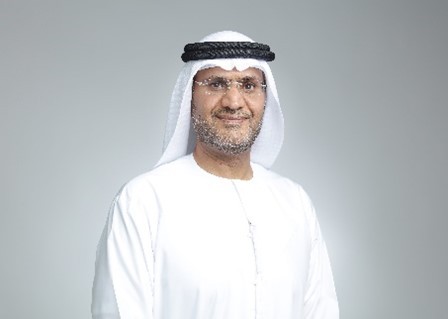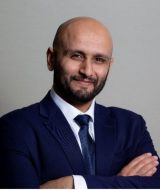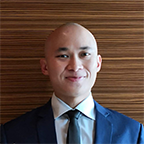
- 02 Aug 2022
One Jump Ahead: Is the UAE leading the Gulf pack?
(This event is organised by MEI DOI – Gulf research cluster.)
Towards the end of 2021, the late President of the UAE, Sheikh Khalifa bin Zayed approved an extensive list of legal reforms. New laws and updated legislation span the business, labour, family, personal status, crime, intellectual property and e-commerce sectors. Of note is a new law permitting investors and entrepreneurs to completely own onshore companies in all sectors – a significant departure from previous practice that guaranteed the UAE national major shares in any company. On the social front, the move to decriminalise consensual relationships outside of marriage is another novelty. Is the motivation behind these changes the creation of a more attractive business environment? How far ahead is the UAE in socio-economic terms, relative to its neighbours?
Following his ascension, the new President, Sheikh Mohamed bin Zayed, has shown no signs of slowing down. From a directive granting children of Emirati mothers the same benefits as other citizens in education and health to a financial package for low-income citizens, he has shown his penchant for supporting domestic constituencies. What is the strategy for harmonising policies among the seven emirates? Crucially, how will the GCC states develop a sustainable plan for Covid-resilience? Are there any social trade-offs for such moves?
Besides examining the UAE’s first-mover advantage, this roundtable will also look at intra-GCC economic competition, with Riyadh and Doha snapping at Abu Dhabi’s heels. The Middle East Institute will welcome two experts, Mr Nasser Al Shaikh and Dr Omar Al-Ubaydli, to address these issues and more.
This public talk will be conducted online via Zoom on Tuesday, 2 Aug 2022, from 4.00 pm to 5.15 pm SGT/ 12pm – 1:15 pm Abu Dhabi/ 11 am – 12:15 pm Manama.
Photo Image: MAHAWI, ABU DHABI, UNITED ARAB EMIRATES – March 06, 2017: HH Sheikh Mohamed bin Zayed Al Nahyan, Crown Prince of Abu Dhabi and Deputy Supreme Commander of the UAE Armed Forces (L) speaks with a Presidential Guard personnel during the inauguration of Ryan Carter / Crown Prince Court – Abu Dhabi.
Watch the full event here:
Listen to the full event here:
About the Speakers

Chairman, Emirate National Holdings LLC and Al-Shaikh Investments LLC
Former Chief Financial Officer, Government of Dubai
Dr. Omar Al-Ubaydli
Director of Research, Economic and Energy Studies
Derasat Bahrain
[Moderator] Dr Clemens Chay
Research Fellow
Middle East Institute, NUS
Mr. Nasser Al-Shaikh is a thought leader who had been a member of the UAE’s development force for over 2 decades. He is an academically qualified financial professional in the UAE and the US, who currently chairs Emirate National Holdings LLC and Al-Shaikh Investments LLC, both multi-disciplined investment vehicles. He has held many prominent and top public positions as Director-General of the Department of Finance – Government of Dubai, member of The Executive Council – a Government body entrusted with formulating & steering Dubai’s strategic plan and as a member of the Supreme Fiscal Committee – Government of Dubai.
He has also held leadership roles in private and public sector with interests in real estate, finance and development, education, consumer savings products, retail & corporate banking, and aerospace. Mr. Al-Shaikh chaired Amlak Finance PJSC, Deyaar Development PJSC, Taaleem PJSC, National Bonds Corporation PJSC, the Sharia-compliant National Savings Scheme of the UAE. He also served as a member of the Board of Directors of Dubai Aerospace Enterprise, Dubai Islamic Bank PJSC and the Dubai Real Estate Corporation (Wasl).
Previously, He was also Head of Finance and Administration of The Executive Office of HH Sheikh Mohammed bin Rashid Al Maktoum, Vice President and Prime Minister of the UAE and Ruler of Dubai and Chief Financial Officer at the Dubai Office.

Dr Omar Al-Ubaydli is the Director of Research at Derasat, Bahrain. He is also an affiliated associate professor of economics at George Mason University; an affiliated senior research fellow at the Mercatus Center; and adjunct visiting professor at the King Fahad University of Petroleum and Minerals; a non-resident fellow at the Arab Gulf States Institute in Washington; and a non-resident fellow at Trends, UAE. His research interests include political economy, experimental economics, and the economics of the GCC countries. Al-Ubaydli previously served as a member of the Commonwealth of Virginia’s Joint Advisory Board of Economists and a Visiting Professor of Economics at the University of Chicago. He regularly publishes his research in international peer-reviewed academic journals, and his mainstream media articles appear in Arabic and English-language newspapers and blogs such as AlHayat, The National, Forbes Opinion, and US News. Al-Ubaydli earned his BA in economics from the University of Cambridge, and his MA and PhD in economics from the University of Chicago.

[Moderator] Dr Clemens Chay is a research fellow at the National University of Singapore’s Middle East Institute. His research focuses on the history and politics of the Gulf states, with a particular emphasis on Kuwait, Oman and Qatar. At MEI he spearheads a public education series entitled “Bridging the Gulf”. His recent academic publications include a chapter that examines Kuwait’s parliamentary politics in The Routledge Handbook of Persian Gulf Politics (2020), a chapter in the edited volume Informal Politics in the Middle East (Hurst, 2021), and a study appearing in the Journal of Arabian Studies, titled “The Dīwāniyya Tradition in Modern Kuwait: An Interlinked Space and Practice.” His commentaries also feature across different outlets, including ISPI, KFCRIS, and AGSIW. He is currently working on a book project related to Kuwait’s diwaniyas (affectionately known as diwawin, and more widely known as majalis outside Kuwait), the reception rooms for informal meetings that have implications for society, politics and diplomacy.
Prior to joining MEI, Dr Chay was the Al-Sabah fellow at Durham University, where he taught and completed his PhD in Middle Eastern and Islamic studies, and where he also received an MSc in defence, development and diplomacy. He is also a Sciences Po Paris alumnus, having read his BA at the Menton campus.




